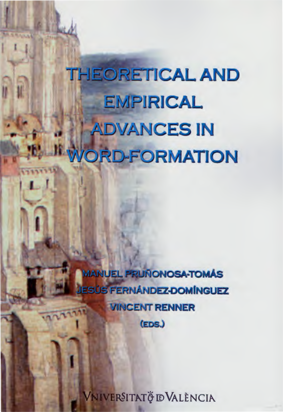Word-formation and word-creation: A datadriven exploration of inventiveness in neologisms
DOI:
https://doi.org/10.7203/qfilologia.18.3283Palabras clave:
inventiveness, word-formation, word-creation, neologism Resumen
Resumen
Some neologisms attract our attention by their inventiveness, while others pass unnoticed. This article reports on an exploration of the concept of inventiveness in lexicogenesis. Inventiveness is not currently a notion present in morphological research, while the semantically related creativity is found in discussions of the opposition between word-formation and word-creation, i.e. the application of morphological rules vs. the extra-grammatical production of neologisms. The question is: Does inventiveness have anything to do with this opposition? One way of investigating a subjective notion like this is to ask informants to provide judgments. In two investigations, the informants read neologisms with short definitions and produced scores of inventiveness for each unit. The neologisms were rank-ordered by inventiveness scores and the ten most and least inventive units were compared. Transparent units, i.e. words with a simple form-meaning relationship, were generally judged less inventive than those with more complex relationships. Also, fabricated words, blends and units with splinters were judged more inventive. Overall, these observations confirm a prototypical distinction between word-formation and word-creation.
 Descargas
Descargas
Cómo citar
-
Resumen481
-
PDF 279
-
PDF (Català)77
-
PDF303
Número
Sección
Licencia
 Este obra está bajo una licencia de Creative Commons Reconocimiento-NoComercial-SinObraDerivada 4.0 Internacional.
Este obra está bajo una licencia de Creative Commons Reconocimiento-NoComercial-SinObraDerivada 4.0 Internacional.
Los autores que publican en esta revista están de acuerdo con los siguientes términos:
- Los autores conservan los derechos de autor y garantizan a la revista el derecho de ser la primera publicación del trabajo al igual que licenciado bajo una Creative Commons Attribution License que permite a otros compartir el trabajo con un reconocimiento de la autoría del trabajo y la publicación inicial en esta revista.
- Los autores pueden establecer por separado acuerdos adicionales para la distribución no exclusiva de la versión de la obra publicada en la revista (por ejemplo, situarlo en un repositorio institucional o publicarlo en un libro), con un reconocimiento de su publicación inicial en esta revista.
- Se permite y se anima a los autores a difundir sus trabajos electrónicamente (por ejemplo, en repositorios institucionales o en su propio sitio web) antes y durante el proceso de envío, ya que puede dar lugar a intercambios productivos, así como a una citación más temprana y mayor de los trabajos publicados (Véase The Effect of Open Access) (en inglés).




